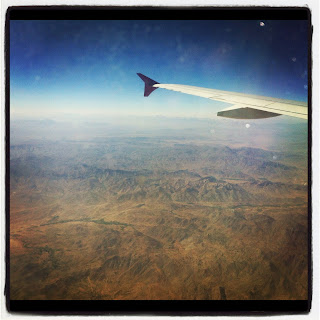سلام از کابل. I'm working with a team from University of Maryland to build Extension educators' capacity to teach gardening and nutrition to women in Kabul. Members of my team have been before, but this was my first trip. I thought I'd share some thoughts about my experience. And, that's all they are:
some thoughts about
my experience that helped me understand what I'd heard on the news a bit differently.
Afghanistan earns many, but not all of the platitudes people use to describe it. First, the benign. Before I left, I heard many people call it the sandbox. It is sandy, dusty, and dry. It needs lotion. Check. Good job, y'all.
.jpg)
Next, the tragic. This part could be miles long, so here are the lowlights. Due largely to its location, Afghanistan has been center stage for succedent regional and global power grabs and proxy wars. As a result of 30+ years of not-so-neighborly interference, Afghanistan is ranked 172 out of 189 countries on the human development index, eking ahead of other global catastrophes like the DR Congo, Sierra Leone, Liberia, and Zimbabwe. And, of course, there's all the killing. The real quagmire is that Pakistan's government has a significant upper hand in its relationship with "major ally" U.S., as every time the U.S. even quietly points out that the ISI is funding and providing foreign fighters and suicide bombers for the insurgency, Pakistan chokes off the NATO (and Afghan people's) supply routes.
It's the worst place in the world to be a woman. While Taliban rule was brief, the regime transformed Afghanistan into a society that denied education, work, health care, and freedom of movement to women and girls, shrouding half of the human potential in the population in these dehumanizing gems:
Yup, that's me. Of course, it could be anyone, and that's the point, but it's me.
For context, several people in Kabul told me that women wore miniskirts in the 1970's. Even a decade after the U.S. removed the Taliban from power, strong, albeit relatively new cultural mores about women's role in society enable the acceptance of honor killings for suspicion of shameful acts like running away from home to escape violence or being alone with a boy. A video of one such killing surfaced while I was there, showing the public execution of a woman accused of adultery to the cheers of men in the community. Rumor has it the men were both killed, too, after the video brought unwanted attention (known to us as international outrage) to the community. Afghanistan's Independent Human Rights Commission estimates that a dozen or so such killings have happened every month this year.
Afghanistan has the highest rates of infant (12.16%) and maternal mortality (1.4% of live birth events) in the world. One in ten children do not make it to their fifth birthdays. Life expectancy is under 50 years of age. Education access and quality undermines individuals' basic participation in society, particularly for the 80-90% of women who are illiterate. Violence is widespread and continues to disrupt development in nearly every part of the country. A more private form of violence persists with child marriages (for girls) and child sex abuse (for boys). As the NATO troop withdrawal nears, Afghans' fears and despair about the government's ability to provide security grow. With or without NATO, a perverse societal perspective on justice is preventing Afghanistan from becoming fair and free.
Finally, the promising.
I met many wonderful individuals - men and women- during the last week. They have aspirations for a peaceful and free Afghanistan. The women we trained at our three-day workshop were bright, hopeful, curious, and strong. While they loved that we tried to dress like locals to fit in, they recognize that we simply live in different cultures without demonizing our way of life. When they found out that I was about to travel to other countries without my father, they were surprised ... but I let them know that about 80% of the people in my own circles were also surprised that I would be traveling alone. Of course, my American friends never expected my dad to accompany me, but the sentiment that women shouldn't travel alone isn't unique to Afghanistan...
Many aspects of life are improving: mortality, immunization, school enrollment, and so on. Women are working. For the generation of girls who missed out on formal education and for the abjectly poor, many foreign aid programs are providing training for them to enter health, education, agriculture, and other fields.
This woman walks to her community garden plot every day to grow vegetables for food and for sale. She receives technical support from female Extension educators who trained in the agriculture program at Kabul University. That's the repeatedly bombed out shell of Darluman Palace, the former presidential home, in the background. The farm looks thirsty, no?
This art gallery provides space and support for women artists in Kabul. Exhibitions portraying Kabul women's artistic perspectives are shared around the world. Many of the paintings depict haunting violence and oppression, while some feature more lighthearted Pollock-esque splatter.
Before I left for my trip, I heard a friend of a friend say, "in my opinion, we should pull the two or three good people out of that country and blow up the rest." While I wouldn't recommend travel to Afghanistan for first-hand confirmation (yet), I would say that my trip there confirmed for me what all travel should confirm for others: We all have the same banal but transcendental aspirations for the lives we build and the people we build them with. No matter how well our emphasis of dissimilarities facilitates our objectification and dehumanization of each other, hijab to Gaga, we simply aren't all that different.
.jpg)






.jpg)
.JPG)

